"Environmental Justice:
It's About Democracy"
League of Women Voters of Alabama
State Convention 2019
THANK YOU host
LWV of Greater Tuscaloosa!
Early Arrival Fun Friday, May 17 then…
Convention May 18-19
Embassy Suites by Hilton
2410 University Boulevard
Tuscaloosa, AL 35401
Want to attend convention?
Here's what to do now.
From the Gulf Coast ecosystem to the tar sands of North Alabama, official neglect and institutional prejudice have created a system that values profits rather than people. Now more than ever, protecting ourselves and our communities is a matter of civic, social, and public health. Come learn how to fight back with stronger public accountability and civic action.
LWVAL Convention 2019 is for ALL members of our League. Yes, delegates will attend to business, but there are many opportunities to learn and enjoy at this convention. Members of the public are also encouraged to attend free of charge (no food included).
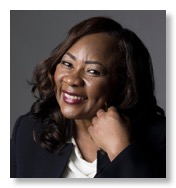
Moderator: Leonette Slay, President LWV of Greater Birmingham. Panelists: Kirsten Bryant, Outreach Director, Gasp; Charlie Powell, President, People Against Neighborhood Industrial Contamination (PANIC); Kyle Whitmire, Political Commentator, al.com; Pastor Thomas Wilder, Bethel Baptist Church.
PANEL 2 - Sacrifice Zones: How clean air, water and land are sacrificed for profit in rural and low-income Alabama neighborhoods
Moderator: Catherine Coleman Flowers, Senior Fellow in Environmental Justice & Civic Engagement with the Center for Earth Ethics and Rural Development Manager with the Equal Justice Initiative. Panelists: Nelson Brooke, Black Warrior Riverkeeper; Cindy Lowry, Executive Director, Alabama Rivers Alliance; Yohance Owens, Executive Director, Village Creek Human and Environmental Justice Society, Inc.; Ramsey Sprague, President, Mobile Environmental Justice Action Coalition (MEJAC)
PANEL 3 - The Rising Tide: Sounding the alarm on the impacts of climate change in Alabama
Moderator: Joyce Lanning, Consultant and Volunteer Environmental Educator. Panelists: Renee Collini, Northern Gulf of Mexico Sentinel Site Cooperative Coordinator, MS-AL Sea Grant Consortium; Catherine Flowers, Senior Fellow in Environmental Justice & Civic Engagement with the Center for Earth Ethics and Rural Development Manager with the Equal Justice Initiative; John Northrop, Senior Co-chair, Citizens’ Climate Lobby, Birmingham Chapter; Stephen Stetson, Senior Campaign Representative, Sierra Club Beyond Coal Campaign; Daniel Tait, Research and Communication Manager, Energy and Policy Institute.
Leonette Slay, Moderator
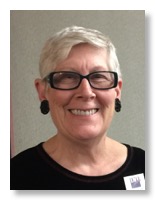
Leonette joined the League of Women Voters in 1976 in Austin, Texas. She helped organize a new League while living in Elizabethtown, Kentucky and has served as president of both the Tuscaloosa and Birmingham LWVs and as a member of the Columbia, SC LWV. She served as co-president of LWVAL with Scarlett Gaddy and as chair of the state nominating committee. She is currently president of the LWV of Greater Birmingham.
Kirsten Bryant
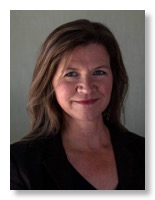
In 1995, Kirsten received the Bob and Mary Burks award for her service to the organization. She earned her undergraduate degree in merchandising with a minor in marketing from the University of Alabama. She has lived in the greater Birmingham area for 20 years working in the private sector in management and marketing related positions and as a nonprofit executive. It is Kirsten’s hope that future generations will inherit a healthy Alabama where clean air and water are valued and protected.
Charlie Powell
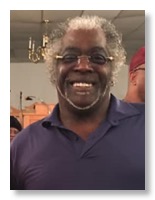
Kyle Whitmire

A graduate of Birmingham-Southern College, he began his career at Birmingham Weekly, where his political column won multiple Association of Alternative Newsweeklies awards. Later he co-founded the alt-weekly and digitally-focused new media startup, Weld for Birmingham, where he served as political columnist and new media editor.
After joining the Alabama Media Group in 2012, he first worked as a government and politics reporter, leading multiple investigations. He moved to his current position of columnist in 2014. His work has appeared in the New York Times, Washington Post and CNN.com, in addition to television and radio appearances.
He lives in Birmingham, Alabama, with his wife, Elizabeth, his son, Ward, and new daughter, Margaret.
Pastor Thomas Wilder
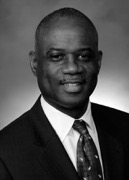
Active in a number of civic and professional organizations, he has served on the boards of the United Way of Central Alabama, the Shelby County Department of Human Resources, Girls Inc., The Addiction Prevention Coalition, The Birmingham Construction Industry Authority and United Cerebral Palsy.
Pastor Wilder holds a Master’s Degree in Pastoral Leadership from Birmingham Theological Seminary (2018), a Masters in Business Administration from UAB in 1998, a Bachelor’s Degree in Commerce and Business Administration from the University of Alabama (1980) and an Honorary Doctorate in Business Administration from Faith Grant College. He has been recognized as one of the Birmingham Business Journal’s Top 40 Under 40, Leadership Birmingham, Leadership Shelby county and United Way Board Member. He is presently pursuing his Doctor of Ministry Degree from Birmingham Theological Seminary.
Although a native of Aliceville, he and his wife, Mechelle, reside in Birmingham. They have four children: Charis, Thomas III, Gilia and Kendra.
He is the author of one book entitled The Power of Taking Ownership.
PANEL 2 - Sacrifice Zones: How clean air, water and land are sacrificed for profit in rural and low-income Alabama neighborhoods
Catherine Coleman Flowers, Moderator

Nelson Brooke
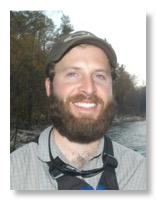
As Riverkeeper, Nelson patrols and photographs the Black Warrior River and its tributaries from the land, water, and air, looks for pollution problems, responds to citizen complaints, researches and analyzes polluters’ permits, collects pollution samples for laboratory analysis, educates the public about the beauty of the river and threats to it, works to empower stakeholders throughout the watershed, advocates compliance with environmental laws, works on finding solutions to pollution problems, and is a spokesman for the Black Warrior River watershed. Nelson runs our Riverkeeper Patrol Program and coordinates with our Legal Program when appropriate. Nelson is available to give educational presentations to your school, civic organization, or club.
Cindy Lowry
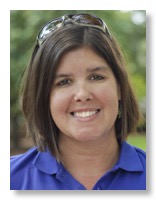
A native of Alabama, Cindy was born and raised in Oneonta, Alabama. She received her BS degree in Wildlife Science from Auburn University and her Masters of Public Administration from the University of Alabama at Birmingham. The focus of her masters’ thesis was citizen participation in public policy. Cindy has more than 15 years of experience in the conservation nonprofit sector. She joined the staff of the Alabama Rivers Alliance in 2005 and was promoted to executive director in 2007.
Cindy has been recognized as a “Wonderful Outstanding Woman” from the Metro Birmingham branch of the NAACP (2012), named one of the “Women Who Shape the State” by al.com (2016) and awarded an Auburn University Alumni Spirit of Sustainability Award (2017). Cindy is the former President of the Board of Directors for Alabama Arise and has been a long-time member of the Board of Directors for the Friends of the Locust Fork River.
Yohance Owens
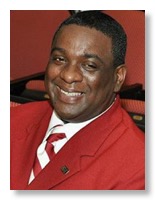
Mr. Owens graduated from Holy Family Cristo Rey Catholic High School 1991 in Birmingham, Alabama. Mr. Owens received his Bachelor of Arts degree in Business Management from Talladega College in 1995. Mr. Owens career spans retail sales, consumer finance, community leadership, politics, professional development, mentoring programs, retirement planning, non-profit and community service.
Mr. Owens has over thirty two years of community service. He is a member of the Adamsville-Forestdale Lions Club (President 2010-2012 and Zone Chairman 2008-2010) , Alabaster-Pelham Alumni of Kappa Alpha Psi Fraternity, Inc( President 2013- Present), Board Member of B.E.A.T. (Bethel Ensley Action Taskforce) of Birmingham, Alabama, American Diabetes Association, American Cancer Society, a member of BEPA (Birmingham Environmental Partnership Association), City of Adamsville Abatement Board, Northwest Jefferson County Chamber of Commerce, American Heart Foundation, Hands-On Birmingham, and served on the City of Adamsville City Council from 2008-2012.
Mr. Owens has attended New Pilgrim Baptist Church in Birmingham, Alabama since birth. Yohance motto: "Community Service is one of the greatest aspects of our society."
Ramsey Sprague
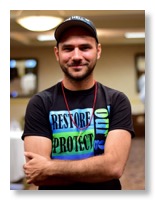
PANEL 3 - The Rising Tide: Sounding the alarm on the impacts of climate change in Alabama
Joyce Lanning, Moderator
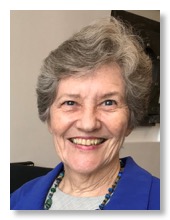
After earning her PhD in 1988 from the University of Alabama in Birmingham (UAB) in Administration/Health Services, Joyce Lanning worked for several years in that field. In 1998, she left her faculty position in the Graduate School of Public Health at UAB to give her time to protecting our environment, primarily through seeking just and workable solutions to climate change. Since joining the LWV in 2007, Joyce has worked on environmental and natural resources issues while serving on the boards of the LWVGB and LWVAL. At the national level she serves on the LWVUS Climate Change Task Force and testified on its behalf at the 2014 EPA hearing in Atlanta in favor of the proposed Clean Power Plan. Joyce represented LWVAL before the Ala. Public Service Commission during the ‘informal public proceedings’, stressing transparency and accountability in determining utility rates. In addition to her LWV roles, Joyce supports local, state and national organizations working to address clean energy and climate change, including the Climate Reality Project and Citizen's Climate Lobby.
Renee Collini
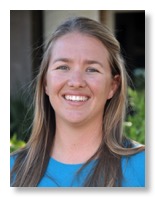
Collini serves on the Gulf of Mexico Alliance Community Resilience and Habitat Teams, is an elected director to the Gulf of Mexico Coastal Ocean Observing System Board of Directors, and is a leader in the Gulf of Mexico Climate and Resilience Community of Practice. She has lead projects and efforts that have improved coastal community and environmental resilience to sea-level rise across the northern Gulf and has lead development of tools that have been applied throughout the Gulf and across the United States.
Collini splits time between Dauphin Island, Alabama and Vancleave, Mississippi with her husband and three dogs where she enjoys spearfishing, boating, and beach-going. She holds a Master of Science in Marine Science from the University of South Alabama and a Bachelor of Science in Biology from the University of Texas at Dallas.
Catherine Coleman Flowers
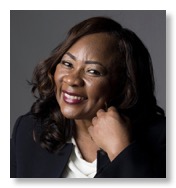
John Northrop

Stephen Stetson

Daniel Tait
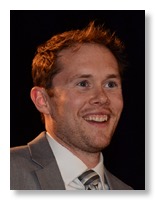
Daniel has worked in sustainable energy since 2011 when a tornado outbreak in North Alabama motivated him to get involved with local efforts to build a more resilient and sustainable energy infrastructure. Since 2011, Daniel has upgraded more than 7 million square feet of residential building space to make it more energy efficient, saving $1.5 million in energy costs. He is also responsible for more than 20 million square feet of commercial building space committing to save 20% of their energy consumption and more than 1 megawatt of solar development in North Alabama.
Daniel was named the 2015 International Young Energy Professional of the Year by the Association of Energy Engineers and acts as Treasurer of the Association of Energy Engineers, Huntsville Chapter.
Daniel is a graduate of Leadership Huntsville/Madison County’s Connect Program, Class 15 and the Alabama Leadership Initiative, class of 2016. He graduated from the University of Alabama in Huntsville with a degree in International Trade and Foreign Language and resides in Huntsville, Alabama with his wife and son.
Top | Panels | Keynote![]()
Biographical Sketch of
Catherine Coleman Flowers
Panelist, Moderator and Keynote Speaker
of the 2019 LWVAL Convention
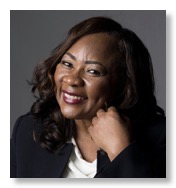
Serving the citizens of Lowndes County, one of the 10 poorest counties in Alabama’s Black Belt, Ms. Flowers has been able to bring significant resources to the County to address its many infrastructure and social problems. In 2002 she was appointed the economic development coordinator for the county. During the first six months of her tenure, Ms. Flowers was able to help secure a federal grant for over half a million dollars through a federal appropriation from Senator Richard Shelby. She also helped to negotiate an agreement with the local electric cooperative to help poor residents plagued with power bills which were among the highest in the nation. She assisted families by negotiating an end to a policy where poor families faced arrest or eviction from their homes because they could not afford an onsite septic system. After pursuing the release of the 2002 appropriation through EPA for eight years, Ms. Flowers helped to produce a master plan for addressing the raw sewage issue in Lowndes County.
Later she was appointed director of the Alabama Rural Initiative of the National Center for Neighborhood Enterprises which was located in Washington, DC. She developed strategies and programs to spur economic growth in the county. This included writing the grant that funded the creation of the Comprehensive Economic Development Strategy (CEDS) for the county. Along with Cliff Henry of Hamer, Siler and George, nationally recognized economic development consultants, she facilitated the local involvement in the development of the CEDS plan. Flowers was successful in securing $4.2 million from the Economic Development Administration of the United States Department of Commerce for infrastructure development within two industrial parks. The industrial parks, located in Fort Deposit, Alabama, the county’s largest city, and the Tyson location near Hayneville each attracted a tier one supplier to Hyundai providing jobs to local residents. From 2004 to 2007, she administered the ACRE Community Resource Center in White Hall, which provided numerous services to residents including job information, medical treatment, financial literacy training, homeownership training and career development. In 2004 she was appointed by Governor Bob Riley to serve on Alabama’s Women’s Commission, and in 2005 she partnered with the Canterbury School to educate students that were in limbo due to Alabama’s High School exit exam. Ms. Flowers has been instrumental in eight poor families living in dilapidated housing receiving donated homes.
A long time civil rights and community activist, Ms. Flowers has been a powerful voice for the less fortunate since her childhood. Influenced by the history of Lowndes County, at the age of ten she began to write poetry and songs about social change. A local television reporter became aware of her writings when he accompanied a team from the British Broadcasting Company to her parents’ home in 1973 to interview her mother who had been a victim of sterilization. At the age of sixteen, she became a regular guest on the weekly television show Focus, speaking publicly on issues of the day, with quality education and student rights becoming her forte.
During her junior year in high school, she organized The Concerned Parents and Students for Quality Education in Lowndes County, because of the type of instruction offered at a school which showed an “R” rated movie during the school day to youths from grades seven through twelve. Largely through her efforts, the principal and superintendent resigned, leading to major change in the county. As a member of the Alabama Students for Civil Rights, Catherine was selected as a Youth Fellow of the Robert Kennedy Memorial Foundation where nationwide she advocated for quality education for all children. She met Senator Ted Kennedy during the summer of 1975 while interning in Washington to learn how Capitol Hill functioned. As a college student she was one of the five original plaintiffs in Knight v. Alabama along with Dr. Alma Freeman, Dr. John Gipson, Randy Anderson, and John Knight. She organized the Student Action Committee at Alabama State University in 1981 which coordinated a statewide march on the Capitol to protest Governor Fob James’ plan to merge Alabama State University under the proposed University of Montgomery. That action led to an alliance with the Southern Christian Leadership Conference and the university lifting its ban of SCLC activities on ASU’s campus which was instituted in the 1960s. In 1981 SCLC held its national Board meeting at ASU and the Student Action Committee received its charter as a chapter of SCLC. Later Ms Flowers became the first director of the National Voting Rights Museum in Selma, Alabama.
Using her leadership abilities, Ms. Flowers decided to enter the education arena as a history teacher to inspire youth, spending more than thirteen years in the classroom advocating social responsibility and community service. In 1990 she brought a group of her students from Washington, DC and they marched the historic route from Selma to Montgomery. The participation of the students was hailed by the Washington Post. While teaching in North Carolina, she became the first teacher in the history of the U.S. Department of Education to file a discrimination complaint on behalf of African American and Native American students. The resolution led to blacks and Native Americans being elevated to positions of authority within that school system that reflected the makeup of the population, and the elimination of discriminatory policies. As a result she was approached by the NAACP Legal Defense Fund to become a lead plaintiff in a case they were considering to attack tracking in public schools. She also took those students to the inauguration for President Bill Clinton. Upon moving to Detroit to teach, she further developed a reputation for innovative and effective teaching methods, as well as a deep commitment to and genuine concern for her students. After a year at Phoenix Academy in Southwest Detroit, she was recruited to teach at the prestigious Renaissance High School. In 2000, Flowers and her students joined the reenactment of the march from Selma to Montgomery. During this march she met the Pulitzer prize-winning historian Taylor Branch. She assisted him with research and interviews for his book, At Canaan’s Edge, which chronicles the Civil Rights Movement. Her knowledge of civil rights history led historian Hasan Jeffries to ask for help with his book, Bloody Lowndes. He noted her work in the area of civil rights in the book’s epilogue. In 2010 during the 45th commemoration of the Selma to Montgomery march she worked quietly with community leaders to ensure that the march would continue once it began despite the issues within the leadership of SCLC. Coordinating food, lodging, community participation and mass meetings, Ms. Flowers was credited by SCLC staff for enabling the completion of the march.
Her awards and recognitions include recipient of the Interreligious and International Peace Council’s Crown of Peace Award for Exemplary Leadership in Reconciliation and Peacemaking in 2004; The Dorothy L. Height Award for Social Work from Delta Sigma Theta, Inc. Montgomery Alumnae Chapter in 2011; induction in the Pi Sigma Alpha National Political Science Honor Society, Alpha Gamma Chapter in 2013; and 2014 she became a member of Delta Sigma Theta, Inc.
Ms. Flowers still considers herself a teacher by profession but an activist at heart. Throughout her life, she has always been at the forefront of social justice. She feels that she has been called to champion social and personal responsibility, and to model solutions to poverty by strengthening families and communities, as well as give voice to the needs of the less fortunate. The death of her father, a well-respected community leader and strong advocate for the poor, led her to return home to Alabama to rededicate her life to addressing the needs of the people in her native Lowndes County. She believes that the work of the ACRE, will serve as a model providing solutions for rural poverty that could be applied throughout the United States. Her testimony before an independent expert of the United Nations on the raw sewage issue in Lowndes County was part of the Report of the Special Rapporteur on the human right to safe drinking water and sanitation, Catarina de Albuquerque to the United Nations Council on Human Rights in August of 2011. In October of 2015, in partnership with the United States Human Rights Network and the Unitarian Universalist Service Committee, she provided testimony before the Inter-American Commission of Human Rights of the Organization of American States. She also helped organize the first climate conference in Alabama for Climate Reality which is headed by former Vice President Al Gore. Later she hosted a UN Working Group on fact finding mission to Lowndes County. In December of 2015 she represented the Center for Earth Ethics in Paris as an official observer at COP 21. She was invited to the first White House Water Summit in March of 2016, addressed the national River Rally in May 2016, and Engineers Without Borders in 2017.
The accomplishments of Ms. Flowers have been chronicled in publications such as The Washington Post, The Guardian, The Detroit Free Press, The New York Times, The New Republic, Circle of Blue, the Financial Times and the Montgomery Advertiser. Her work is also highlighted in the companion book to An Inconvenient Sequel. Currently she is writing a book about her fight for equitable access to sanitation and is co-author of a 2017 peer reviewed study with Baylor’s National School of Tropical Medical that found evidence of tropical parasites in rural Lowndes County, Alabama where people are living amongst raw sewage. She earned Master of Arts in History from the University of Nebraska, and hopes part of her legacy will be inspiring affordable technological solutions to onsite wastewater treatment.
